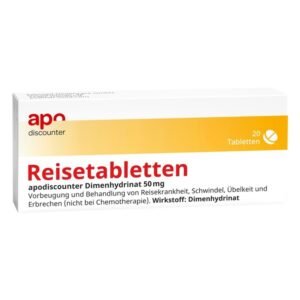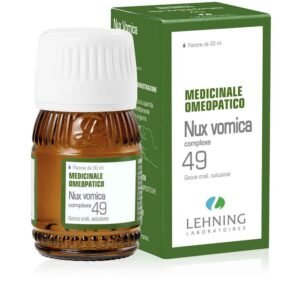Biofarm Sp. z o.o.,Aviorexan 50 mg + 50 mg 10 tablets,Aviorexan 50 mg + 50 mg 10tabl
$9,21
Aviorexan is a herbal preparation to reduce the symptoms of motion sickness.
Aviorexan is a combination drug containing two active ingredients: dimenhydramine and caffeine. Dimenhydramine belongs to the group of antihistamines. Caffeine has a stimulating effect on the nervous system. Both substances reduce symptoms of motion sickness. Caffeine mitigates the sedative effect of dimenhydramine.
Compound:
The active ingredients of the drug are dimenhydramine and caffeine. Each film-coated tablet contains 50 mg of dimenhydramine (Dimenguidrinatum) and 50 mg of caffeine (Coffeinum).
Other Ingredients: Tablet core: microcrystalline cellulose, crospovidone type A, povidone K 29/32, colloidal anhydrous. silicon dioxide, magnesium stearate. Tablet shell: hypromellose, titanium dioxide (E 171), macrogol 6000, talc.
Indications:
The drug is indicated for the prevention and treatment of symptoms of motion sickness (nausea, vomiting, dizziness).
The onset of action occurs within 15–30 minutes. The therapeutic effect is observed from 3 to 6 hours after taking the drug.
Notes:
Application:
Adults and teenagers over 12 years of age:
The recommended dose is 1-2 tablets. If necessary, the dose can be repeated after 4-6 hours.
The dose should not exceed 8 tablets per day. To prevent symptoms of motion sickness, the first dose should be taken no later than 30 minutes before your planned trip.
Side effects:
Like all medicines, this medicine can cause side effects, although not everyone gets them.
The following side effects may occur during treatment with Aviorexan:
Side effects associated with the use of dimenhydramine:
Rarely (may affect up to 1 in 1000 people):
– anemia, – leukopenia (decrease in the number of white blood cells), – thrombocytopenia (decrease in the number of platelets), – pancytopenia (decrease in the number of all types of blood cells, i.e. leukocytes, erythrocytes and platelets), – agranulocytosis (marked decrease in the number of one type of leukocyte – granulocytes, or the absence of granulocytes in the blood).
Very rare (may affect up to 1 in 10,000 people):
– paradoxical arousal (especially in children, paradoxical reactions may occur, such as insomnia, nervousness, confusion, convulsions, irritability, euphoria, delirium, palpitations and convulsions), – tachycardia (rapid heartbeat)*, – heart rhythm disturbances* (including including extrasystole – additional heart contractions, heart block), – increased blood pressure, – decreased blood pressure, – increased secretion of bronchial secretions, which can lead to difficulty breathing. *reactions commonly associated with dimenhydramine overdose.
Frequency unknown (frequency cannot be estimated from available data):
– anaphylactic reactions, – allergic reactions, – loss of appetite, – agitation, – sleep disturbances, – anxiety, – tremor, – drowsiness, – sedation, – dizziness, – headaches, – visual disturbances, – increased pressure in the eyes, – nausea, – vomiting, – diarrhea, – constipation, – abdominal pain, – dry mouth, – allergic skin reactions, – increased skin sensitivity to sunlight, – dermatitis, – itching, – rash, – erythema, – difficulty urinating, – sexual dysfunction, – worsening of porphyria, – feeling of fatigue.
Side effects associated with caffeine consumption:
Buy [current_product_title]
Price of [current_product_title]
Order online [current_product_title]
Where to buy [current_product_title]
Cost of [current_product_title]
Cheapest price for [current_product_title]
Find in pharmacy [current_product_title]
Buy online [current_product_title]













